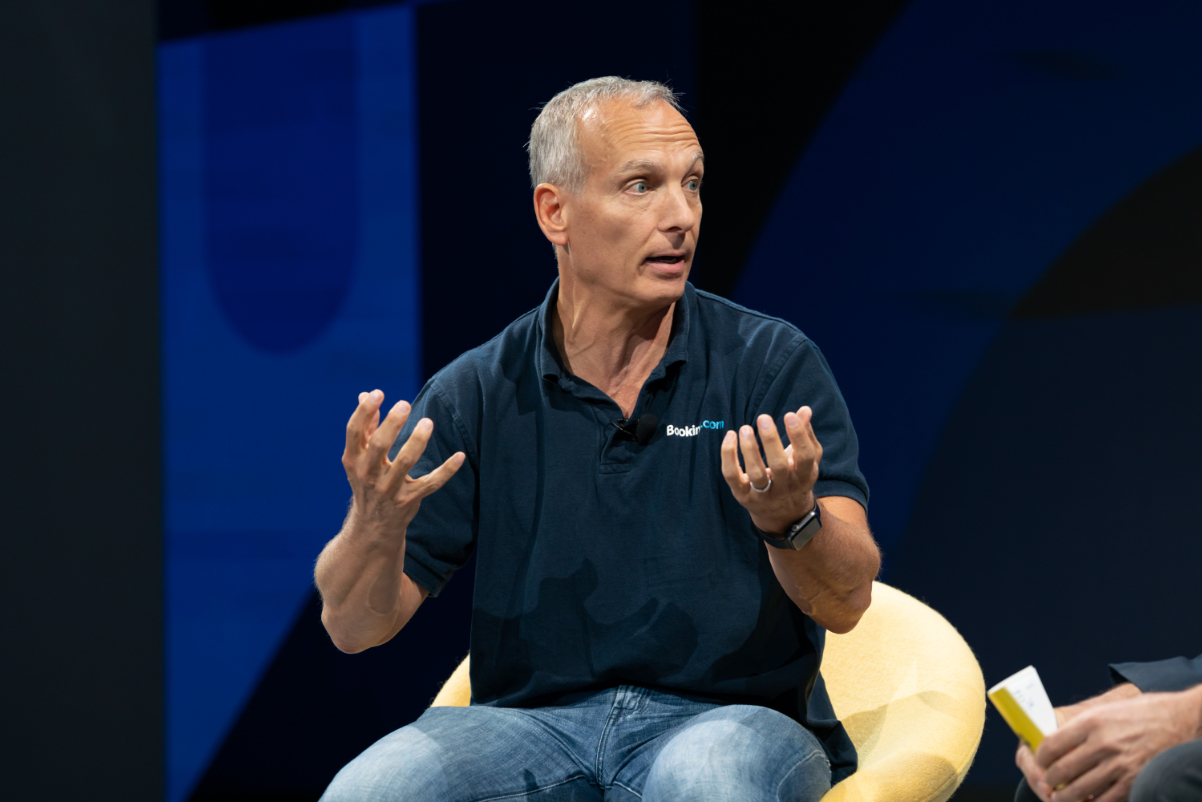Skift Take
One challenge for struggling travel SPACs beyond their stock prices is to create something new that's truly valuable to their customers. Booking.com did just that years ago, although others have caught up in the interim.
Reverse stock splits are almost never a good sign and companies have a tough time recovering. They do it when their shares are in the basement and they’re at risk of a delisting.
But a bunch of struggling travel SPACs that enacted reverse stock splits last year may find hope in Booking Holdings – its shares were trading Thursday for more than $3,500 each.
Before it was named Booking Holdings, the company was called Priceline. Its share price was stuck around $1 per share starting in late 2000 and for the next few years before executing a reverse stock split in June 2003. The company had been trying to cope with a torrent of Better Business Bureau complaints over customer service issues, competitive pressures, and the aftermath of the 9/11 attacks.
The Priceline Group changed its name to Booking Holdings in 2018 to reflect the growth of Booking.com, which today generates about 90% of the parent company’s revenue.
Booking Holdings CEO Glenn Fogel joined Priceline as vice president of corporate development in February 2000. He became CEO in 2017. “We came from nothing practically, and in the almost 25 years I’ve been at this company we have developed something that truly provides value to customers,” Fogel recalled during a Barron’s podcast last week.
A Booking Lesson for Struggling Travel SPACs
There are potential lessons for Vacasa, Inspirato and Sonder, all of which went public through SPACS during the pandemic and executed reverse stock splits last fall after their share prices fell below $1 per share for an extended period.
On Thursday, Vacasa was trading at $7.30 per share, Sonder at $2.90, and Inspirato at $3.87.
Fogel, who didn’t mention these SPACs during the discussion, recalled that Netherlands-based Booking.com became a force in Europe when it developed a business model and guest proposition that few, if any others were doing. Booking.com didn’t take any money up front, and let guests pay when they arrived at the hotel.
For hotels, this meant they could collect their money when the guests showed up and didn’t have to wait for weeks for Booking.com, which collected a commission from hotels, to send them a check.
Read More: The Oral History of Travel’s Greatest Acquisition — Booking.com
He added that Booking.com was forced to think early about international expansion because Netherlands was not a country with a huge population.
Should Booking Split Its Stock?
Now that the stock is in the thousands of dollars, would Booking consider a stock split? After all, some investors may be turned off by the high price?
“I don’t think I want that kind of investor,” Fogel said on the podcast. “By the way, I’m not saying that we shouldn’t [split the stock]. Because what does matter is what do the shareholders want. I’m not saying we’d never do it. Maybe we would.”
He said one downside of the share price being at its current level is when the company hands out shares to employees.
“There’s an emotional feeling of, ‘you give me only three shares or four shares, five shares,'” Fogel said. “And emotions do matter. So maybe some day. We wouldn’t do it because I think there’s some change In the value of the company.”
The Daily Newsletter
Our daily coverage of the global travel industry. Written by editors and analysts from across Skift’s brands.
Have a confidential tip for Skift? Get in touch
Tags: booking holdings, booking.com, glenn fogel, inspirato, online travel newsletter, sonder, spacs, vacasa
Photo credit: Glenn Fogel, CEO of Booking Holdings, pictured here speaking at Skift Global Forum in September 2022 in New York. Neil van Niekerk / Skift
